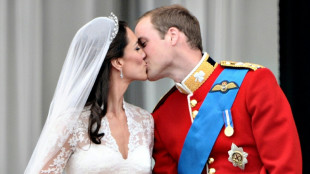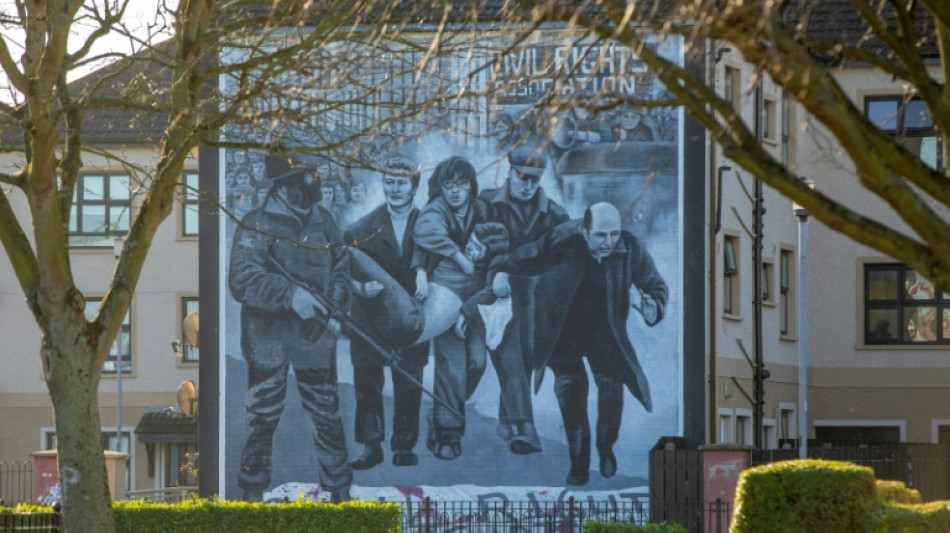
-
 Stock markets edge up as Trump softens tariff pain for auto firms
Stock markets edge up as Trump softens tariff pain for auto firms
-
Pricier trainers? Adidas warns on US tariff impact
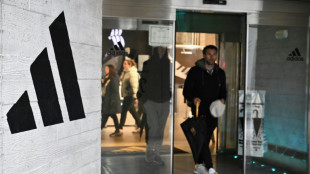
-
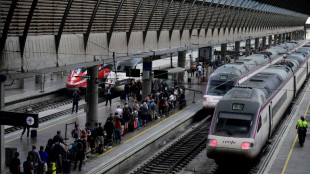 Spain, Portugal rule out cyberattack for massive blackout
Spain, Portugal rule out cyberattack for massive blackout
-
Suryavanshi, 14, dubbed India's next superstar after shattering records
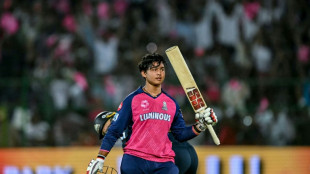
-
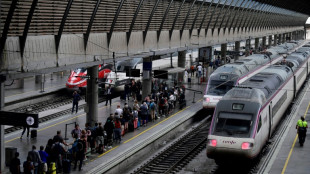 Power back in Spain, Portugal after massive blackout
Power back in Spain, Portugal after massive blackout
-
Pakistan says it shot down Indian drone along Kashmir border
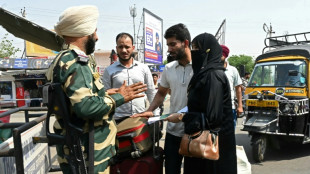
-
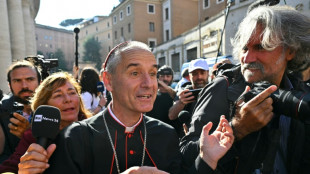 Cardinals run the media gauntlet ahead of conclave
Cardinals run the media gauntlet ahead of conclave
-
BP profit drops 70% amid pivot back to oil and gas
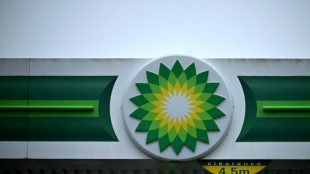
-
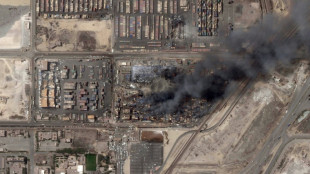 Iran says fire contained after deadly blast at key port
Iran says fire contained after deadly blast at key port
-
Irish rappers Kneecap deny support for Hamas, Hezbollah

-
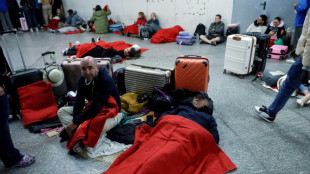 Blackout plunges Spain into chaotic night of darkness
Blackout plunges Spain into chaotic night of darkness
-
Convicted cardinal confirms he will sit out conclave
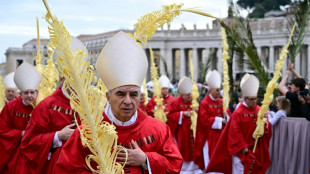
-
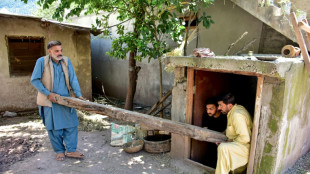 Kashmiris fortify bunkers anticipating India-Pakistan crossfire
Kashmiris fortify bunkers anticipating India-Pakistan crossfire
-
Adidas warns US tariffs to push up prices
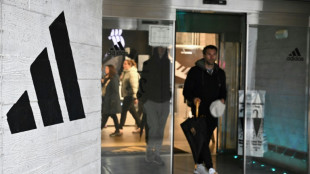
-
 Markets boosted as Trump softens tariff pain for auto firms
Markets boosted as Trump softens tariff pain for auto firms
-
Suryavanshi, 14, dubbed 'next superstar' after batting records tumble
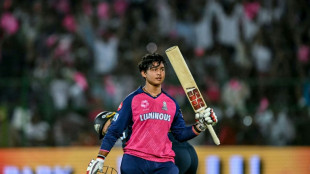
-
 Australian doubles player Purcell accepts 18-month doping ban
Australian doubles player Purcell accepts 18-month doping ban
-
Kashmir attack unites political foes in India, Pakistan
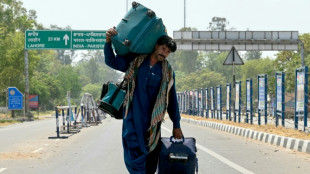
-
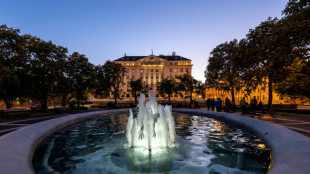 Croatia hotel toasts dizzying century of stars, sovereigns and champagne
Croatia hotel toasts dizzying century of stars, sovereigns and champagne
-
Kenya's desperate need for more snake antivenom
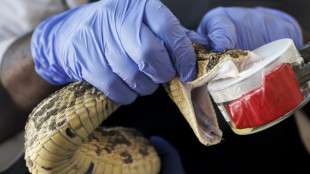
-
 Les Kiss in frame with Wallabies set to name new coach
Les Kiss in frame with Wallabies set to name new coach
-
Cavaliers scorch Heat, Warriors down Rockets in thriller

-
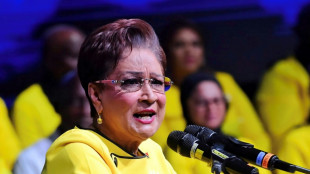 Opposition wins Trinidad and Tobago election, returning Persad-Bissessar as PM
Opposition wins Trinidad and Tobago election, returning Persad-Bissessar as PM
-
Study sheds light on origin of Australia's odd echidna

-
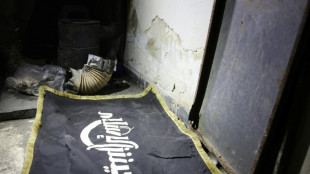 France tries Syrian Islamist rebel ex-spokesman on war crime charges
France tries Syrian Islamist rebel ex-spokesman on war crime charges
-
Trump boasts of 'fun' 100 days, but Americans disenchanted
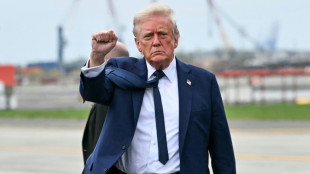
-
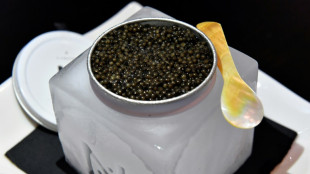 Elitist no more, caviar is turning casual
Elitist no more, caviar is turning casual
-
Amnesty accuses Israel of 'live-streamed genocide' against Gaza Palestinians

-
 Inter slump puts season at risk ahead of daunting Barca trip
Inter slump puts season at risk ahead of daunting Barca trip
-
Power returns to most of Spain, Portugal after massive blackout
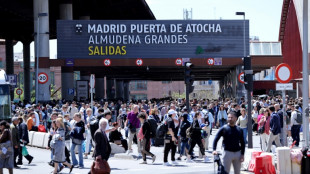
-
 'I have hope': Vietnam Babylift survivor's search for birth mother
'I have hope': Vietnam Babylift survivor's search for birth mother
-
US climate assessment thrown into doubt as Trump dismisses authors
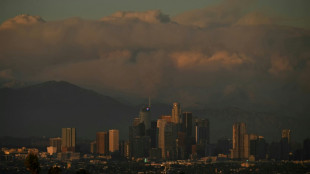
-
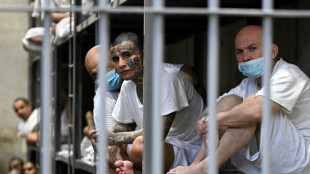 Venezuelan president slams US over little girl's 'abduction'
Venezuelan president slams US over little girl's 'abduction'
-
Hard-right upstarts eye big gains in local UK polls
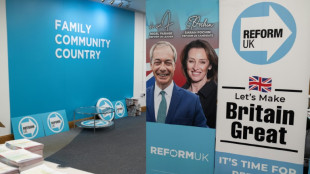
-
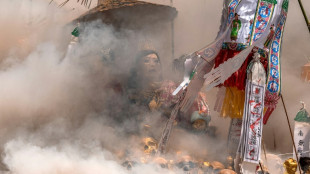 Skulls, smoke and spirits: Thai ceremony for the unclaimed dead
Skulls, smoke and spirits: Thai ceremony for the unclaimed dead
-
Canada's Carney: political newcomer who says he's best in a crisis

-
 Cavaliers scorch Heat to seal series sweep
Cavaliers scorch Heat to seal series sweep
-
Dead salmon create election stink on Australian island
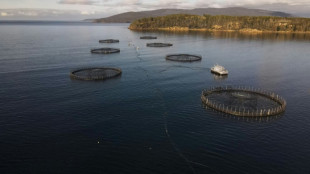
-
 Mic check: Singapore's podcast boom amplifies opposition voices
Mic check: Singapore's podcast boom amplifies opposition voices
-
Markets rise as traders gear up for earnings, key jobs data

-
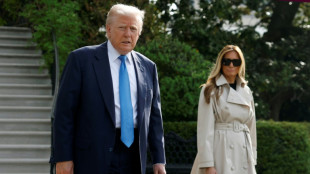 Congress passes 'revenge porn' ban, sending it to Trump
Congress passes 'revenge porn' ban, sending it to Trump
-
Spain and Portugal work to restore power after massive blackout
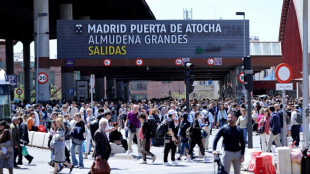
-
 Less-thirsty rice offers hope in drought-stricken Chile
Less-thirsty rice offers hope in drought-stricken Chile
-
Yamal stardust could give Barca edge on Inter Milan

-
 NioCorp Engages Engineering Firms to Update Elk Creek Project Feasibility Study
NioCorp Engages Engineering Firms to Update Elk Creek Project Feasibility Study
-
Global Sports Brand U.S. Polo Assn. Delivers Record $2.5 Billion in Retail Sales for 2024, Targets $3 Billion and 1,500 U.S. Polo Assn. Stores

-
 Meridian's Drilling Extends High-Grade Gold-Copper Ore Zone at Cabacal Via Gold Veins Grading up to 276g/t Au
Meridian's Drilling Extends High-Grade Gold-Copper Ore Zone at Cabacal Via Gold Veins Grading up to 276g/t Au
-
Measles is Likely to Become Endemic - NanoViricides Is Testing a Drug to Combat It

-
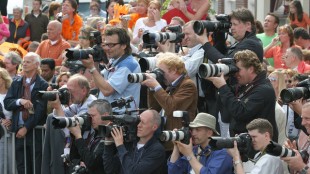 Monogram Technologies Granted Regulatory Approval to Import mBôs TKA System for Clinical Investigation in India
Monogram Technologies Granted Regulatory Approval to Import mBôs TKA System for Clinical Investigation in India
-
The Alkaline Water Company Announces Co-Packing Agreement with Sang Beverages for TEN Alkaline Spring Water


'Bloody Sunday': 10 minutes of killing that shook N.Ireland
"Bloody Sunday" was a turning point in three decades of violence in Northern Ireland known as the "Troubles".
On Sunday January 30, 1972, British paratroopers shot dead 13 Catholic demonstrators in the province's second city, Londonderry.
Here is how events unfolded:
- Peaceful march -
The Northern Ireland Civil Rights Association (NICRA) organised an anti-internment march to take place that day in the city Catholics call Derry.
They were angry at the increasing internment without trial of Catholic nationalists since the previous August.
The march was illegal. Northern Ireland's Protestant authorities had declared a year-long ban on all marches amid spiralling unrest since civil rights protesters began demanding an end to voting, housing and job discrimination against the minority Catholic community in 1968.
Nevertheless, at least 15,000 people joined the march, which set off in a carnival-like mood from the Creggan Estate, a few kilometres from the city centre, through the Catholic Bogside district to Guildhall Square.
Crack troops from the British 1st Battalion Parachute Regiment, drafted in that day, were waiting at barricades to stop the march reaching the city centre.
- Confrontation -
A section of the crowd turned into William Street and youths began throwing stones at a British army barricade.
Troops were ordered to begin arrests and armoured cars drove into the crowd.
Around 4:10 pm soldiers started firing.
Within about 10 minutes 13 people were dead and a further 15 injured. Six of the dead were aged 17.
- 'Whitewash' -
The troops claimed to have come under sustained gunfire as well as attacks with nail bombs. They said they aimed away from the demonstrators.
Their claims, largely accepted in the official report by senior English judge John Widgery, published later that year, were not backed up by independent accounts.
No soldiers were injured in the operation and no guns or bombs recovered.
The victims' families derided the report as a "whitewash".
- Explosion in violence -
The killings proved a boon to the nascent Provisional Irish Republican Army, fighting for Northern Ireland's reunification with Ireland, whose ranks swelled with new recruits.
On February 2, an angry crowd set fire to the British embassy in Dublin.
On March 24, London suspended the Protestant-dominated Northern Ireland provincial government, leading to decades of direct rule from the British capital.
- Apology -
In June 2010 a new report published after a 12-year investigation said British troops fired first and had given misleading accounts of what happened.
The report by senior British judge Mark Saville concluded that none of the victims was armed, soldiers gave no warnings before opening fire and the shootings were a "catastrophe" for Northern Ireland and led to increased violence.
Following the report then British prime minister David Cameron apologised for the killings, saying: "There is no doubt... what happened on 'Bloody Sunday' was both unjustified and unjustifiable. It was wrong."
- Ex-soldier charged -
On March 14, 2018 an ex-paratrooper, known only as Soldier F, was charged with murdering two people and the attempted murder of four others.
But the charges were dropped in July 2021 after a backlash by MPs from Britain's ruling Conservative Party.
"Bloody Sunday", immortalised by a song by Irish rock group U2, was one of the darkest episodes in the conflict between Northern Ireland's Catholic nationalists -- who want a united Ireland -- and Protestant unionists loyal to Britain.
Y.Aukaiv--AMWN

